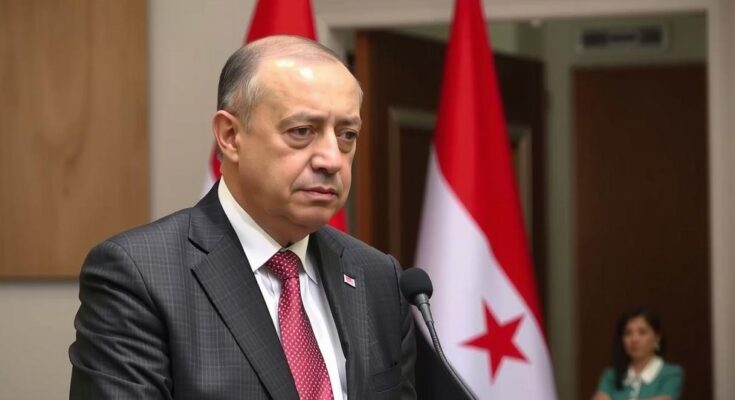Erdogan is set to meet Sisi in Cairo to discuss Syria at the D-8 summit, amidst Egypt’s concerns about the new Syrian government. The meeting is pivotal as Turkey’s influence in Syria grows following the Assad regime’s collapse, highlighting changes in regional power dynamics as the leaders explore collaborative pathways to stabilize and reconstruct post-war Syria.
President Recep Tayyip Erdogan of Turkey is scheduled to visit Cairo to meet with Egyptian President Abdel Fattah el-Sisi, primarily to discuss the situation in Syria. Erdogan’s attendance at the D-8 summit on December 19 highlights the growing concerns in Egypt regarding the potential implications of Syria’s new governance after the removal of Bashar al-Assad.
This meeting signifies the adjustment in regional alliances as Erdogan’s historical support for Syrian rebels contrasts with the traditional stance of Arab states, which have been cautious about former affiliations with groups like Hay’at Tahrir al-Sham (HTS). During this time, Erdogan is expected to engage in direct discussions regarding the influence Turkey is expected to wield in post-conflict Syria.
The backdrop to this diplomatic engagement is a shift in power dynamics in Syria following the collapse of the Assad government. The Egyptian government sees Ankara as a key player in facilitating a stable transition, which has become even more pressing due to the recent alliance of Syrian rebels who have made significant advances in governance. With Iran’s influence in the region also seen as a concern, both Turkey and Egypt aim to stabilize Syria, which would allow the return of millions of Syrian refugees and support reconstruction efforts valued at approximately $400 billion.
The forthcoming meeting between Presidents Erdogan and Sisi underlines the nuances of geopolitical relations in the region, especially regarding Syria. Amid ongoing transformations in governance and regional alliances, both leaders are expected to discuss a comprehensive approach to fostering a stable Syria which, in turn, may align their national interests and reinforce their countries’ roles in regional reconstruction.
Original Source: www.middleeasteye.net




